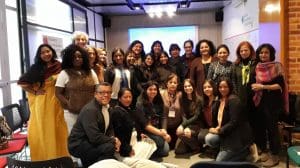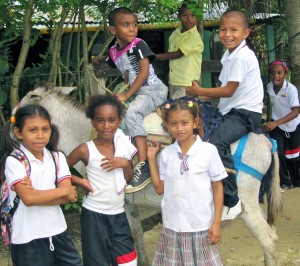Colombia
 The Colombia project is currently evaluating different initiatives with both our current and potential partners to identify projects aligned with MBBI’s objectives to develop peacebuilding skills and practices; strengthen local trauma-informed peacebuilding initiatives; and work in partnership with local Rotary clubs in their service efforts to promote peace.
The Colombia project is currently evaluating different initiatives with both our current and potential partners to identify projects aligned with MBBI’s objectives to develop peacebuilding skills and practices; strengthen local trauma-informed peacebuilding initiatives; and work in partnership with local Rotary clubs in their service efforts to promote peace.
Team Leaders:
- Catalina Chaux
- Macarena Mata
- Charlie Pillsbury
Partners:
- Fundacion Mencoldes
- Club Rotario Bogota-Centenario (CR-BC), Distrito 4281
- Rotary Club Simi-Sunrise (RC-SS), District 5240
- Association Sembrando Semillas De Paz (Sembrandopaz) (Sowing Peace)
Key-Accomplishments
Colombia Project team members partnered with Fundacion Mencoldes and Rotary Districts 4281 and 5240 to provide workshops in December 2018 for women and youth in Soacha and Ibague. The workshops were designed to help them understand peacebuilding theory and practice concepts to master skills to resolve diverse types of conflicts. The participants gained communication skills to approach, facilitate, and address difficult conversations and have learned how to identify rising conflicts and manage the situations to avoid escalations.
Project History
In early 2009, Ricardo Esquivia, the founder and director of Sembrandopaz, located in Sincelejo (Sucre), invited MBBI to work in Caño Berruguita in the Montes de Maria region. Caño is a community comprised principally of Afro-Colombian and indigenous people, who had been displaced by armed groups in 2000 and had begun returning from Sincelejo to their land in 2006, with support from Sembrandopaz and Remanso de Paz, a local evangelical church.

The project focused on three goals:
- Work with Caño’s community leaders to identify a culturally appropriate conflict resolution model and then train community leaders to use that model to resolve conflicts in the community;
- Offer workshops and activities to various age groups to address psycho-social issues in the community and advance the community’s healing process; and
- Replicate this work in other communities in the region through the Citizens’ Reconciliation Commission of the Caribbean of Colombia, a network created by Sembrandopaz in 2007.
By the end of 2013, trained community leaders had facilitated more than 30 restorative circles, dealing primarily with conflicts involving adolescents, as well as several involving land disputes. In addition, workshops were held with community members to address the trauma experienced during the war.
